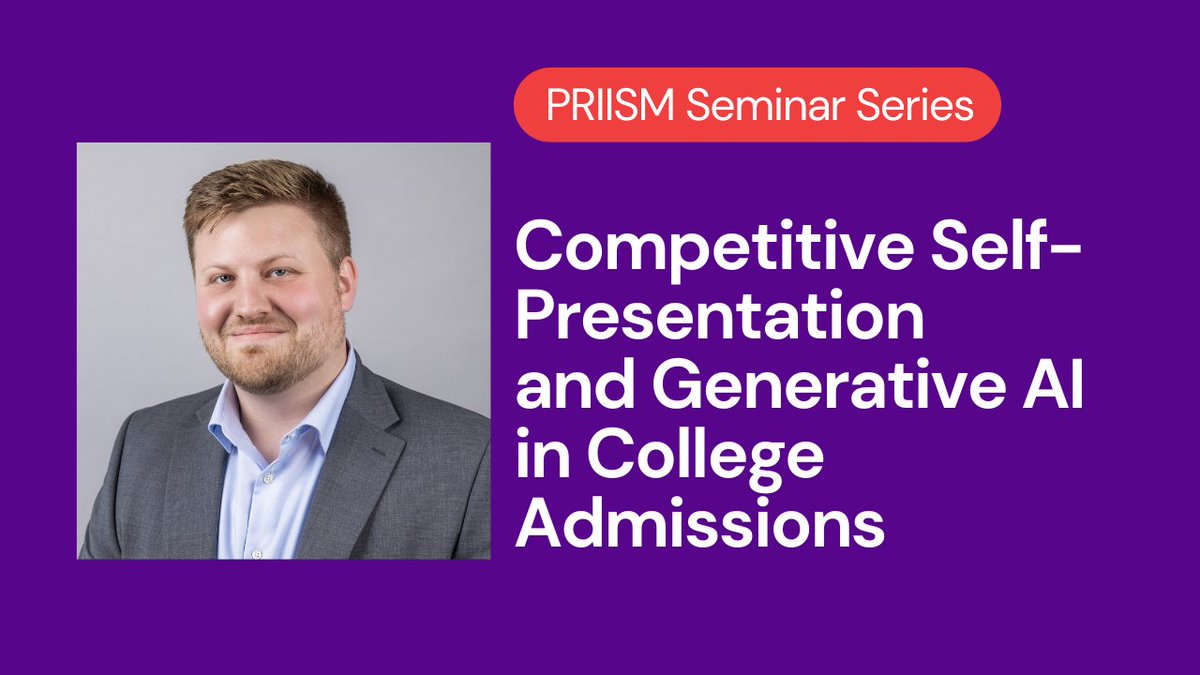
Austin van Loon
@austinvanloon
Asst Professor of Work and Organization Studies at MIT Sloan. PhD in Sociology from Stanford University. Culture, identity, and computational social science.
ID: 491278138
https://austinvanloon.com 13-02-2012 13:11:51
3,3K Tweet
455 Followers
214 Following







Who Gets In? AI-generated essays in college admissions Join us & Austin van Loon to learn about how GAI in college admission essays may reshape demographic makeup of admitted students & transform how merit is evaluated. Wed 5/7, 10 am ET (Hybrid) RSVP: tinyurl.com/PRIISM-5-7-25




Blog post on mixed subjects (human & LLM) studies. Using prediction powered inference makes more sense than blindly substituting LLMs for humans, but still subect to garbage-in-garbage-out & won't resolve deeper questions about what we're trying to study statmodeling.stat.columbia.edu/2025/06/12/bet…









